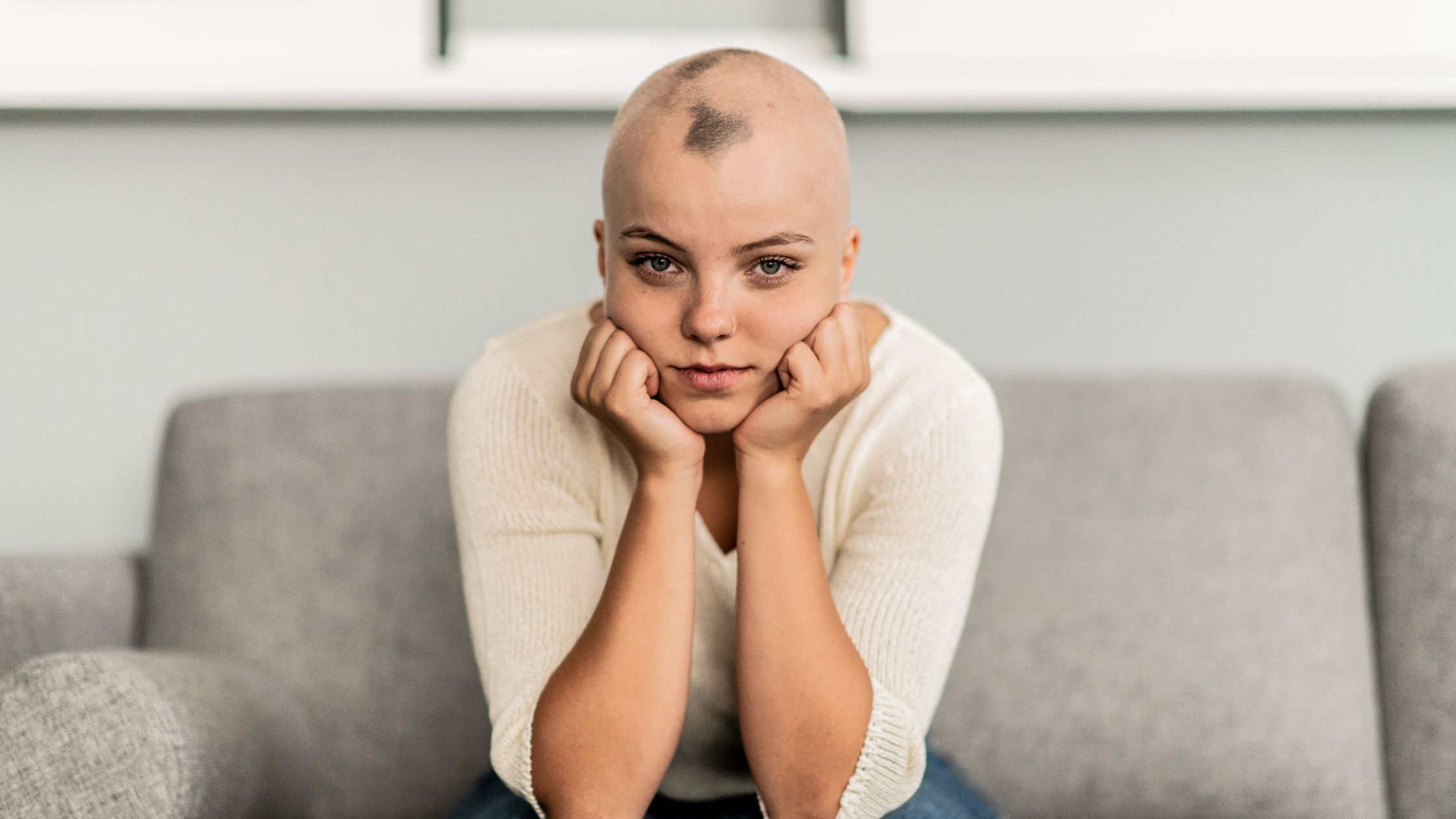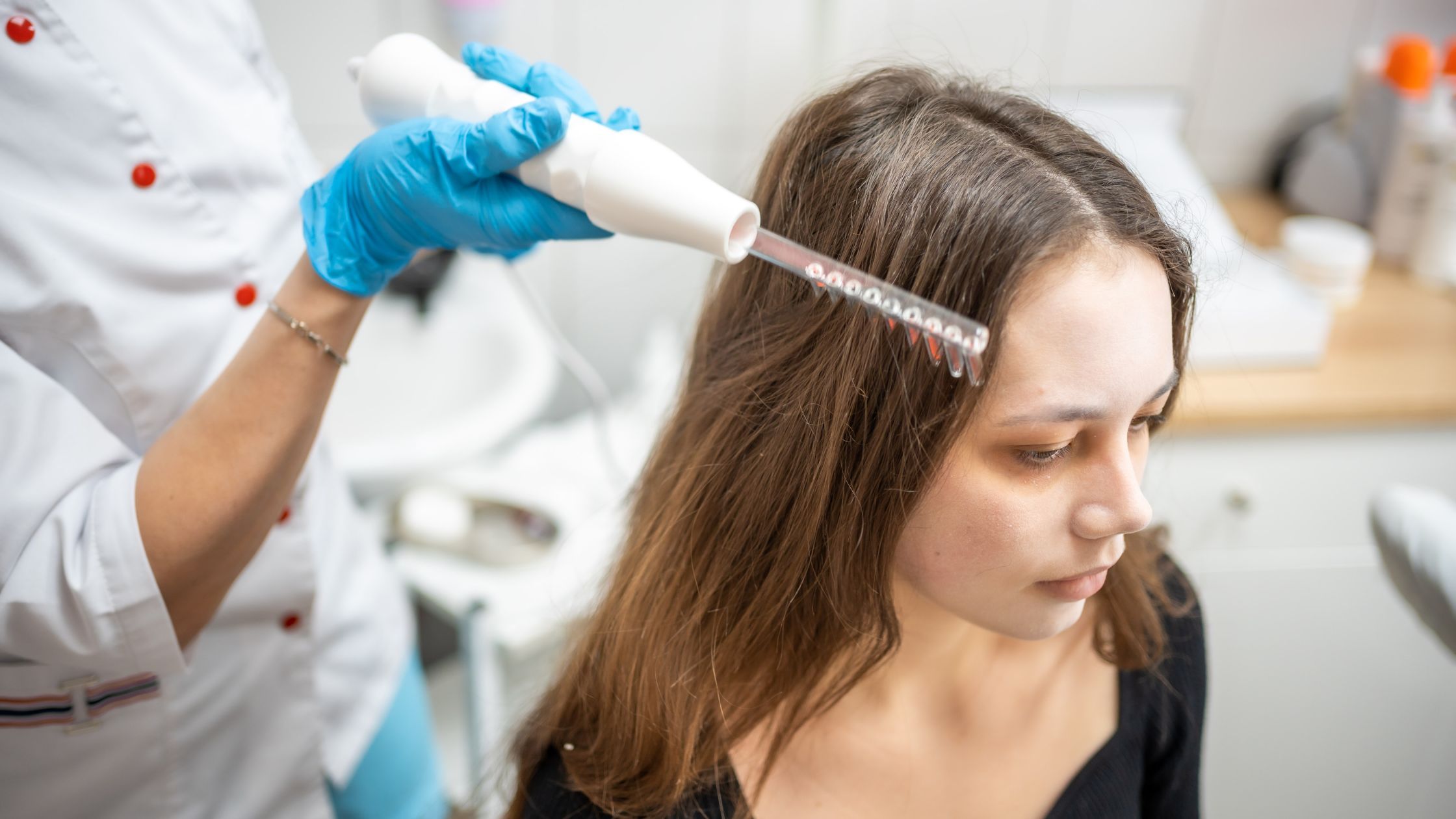Alopecia: What is it and how to treat it
The internet went crazy when Chris Rock made a crass joke about Jada Pinkett Smith’s hair loss condition. Let’s find out what causes hair loss and if it’s treatable.
September 30 2022 | Simra SadafAlopecia: What is it and how to treat it
Alopecia areata is an autoimmune skin condition when a body’s white blood cells attack the cells of hair follicles. This results in hair falling out in clumps. It’s not that every person with alopecia experiences the same amount of hair fall. Hair loss happens differently with different people.
Does alopecia cause baldness in everyone? Not necessarily. Some people witness hair fall only in a few spots, whereas others lose a lot and can go bald. In a few cases, the hair grows back and then falls out later. However, there are cases where the hair that grows back again is healthy and doesn’t experience hair fall again.
Types of alopecia
There are four different types of alopecia:
Alopecia areata totalis: This is the condition when you lose all the hair on your head.
Ophiasis alopecia areata: This causes band-shaped hair loss across the sides and back of a person’s head.
Diffuse alopecia areata: This is a condition where a person witnesses sudden thinning of hair rather than patches.
Alopecia areata universalis: It is when you lose hair all over your body including eyebrows and eyelashes.
Symptoms and diagnosis

The main symptom of alopecia in women is when you witness sudden thinning or sudden bald patches on your hair. These bald patches will be smooth without any irritation or redness.
What is it and how to treat Another symptom of alopecia areata is that your nails won’t be shiny. They will become red and brittle.
If you experience major hair loss suddenly, it’s best to consult a dermatologist at the earliest. They will examine the areas of hair fall and look at your nails. They will prescribe medication based on your age, health risk factors and health history.
Causes of alopecia
Your immune system attacks the body if you have an autoimmune disease. In this case, it will attack the hair follicles which leads to your hair falling out. There are no major causes for alopecia, but some of the causes could be:
Hereditary (someone in your family has/had it)
You have vitiligo, Down syndrome, or thyroid
Asthma
Vitiligo
Anemia
Treatment for alopecia

Alopecia areata can’t be treated but there are chances your hair will grow back again stronger. You can try the below treatments for alopecia:
Topical immunotherapy
Topical immunotherapy is an alopecia treatment of immune-mediated skin diseases. This treatment is done when you experience major hair loss and if you have experienced it more than once. Chemicals will be applied to the scalp to see if it generates an allergic reaction. This allergic reaction helps in growing the hair back.
Corticosteroids
These anti-inflammatory drugs can be taken as medicines orally or can be injected into the scalp. They can also be used as an oil and can be massaged on the skin. These are prescribed for autoimmune diseases. The downside to taking corticosteroids is that they may take a long time to show their effect.
Minoxidil
Minoxidil is also known as Rogaine. It’s usually used to treat baldness. It takes at least 12 weeks for the hair to grow. It’s not as effective as the above two types of alopecia treatments. Only a few of them have been lucky to witness hair growth with minoxidil.
Hair transplant surgery
If you have permanent hair loss due to alopecia, hair restoration surgery is your only option. The surgeon will take hair from the other side of the head or other parts of the body and transplant it to the bald spot. However, you need to know that there are many risks when you have hair transplant surgery. The risks include bleeding, swelling, bruising and infection.
Home remedies for alopecia
You can try to wear a wig if your appearance is taking a toll on your mental health. You can also try a hat, hair extensions or shave your head. You can oil your hair twice a week. Some people recommend applying onion juice, green tea, honey, almond oil and rosemary oil.
It is not a contagious condition. Alopecia disease is not life-threatening, but it can cause anxiety and stress. It’s important to keep talking to your loved ones or a therapist about your feelings.
Disclaimer : Beem Wellness provides general education on health and wellness. The content on this blog, website or any linked material is not intended and should not be considered, or used as a substitute for, medical advice, diagnosis or treatment. If you or any other person has a medical concern, you should immediately consult your health care provider.
In case of medical emergencies, please call 911.

